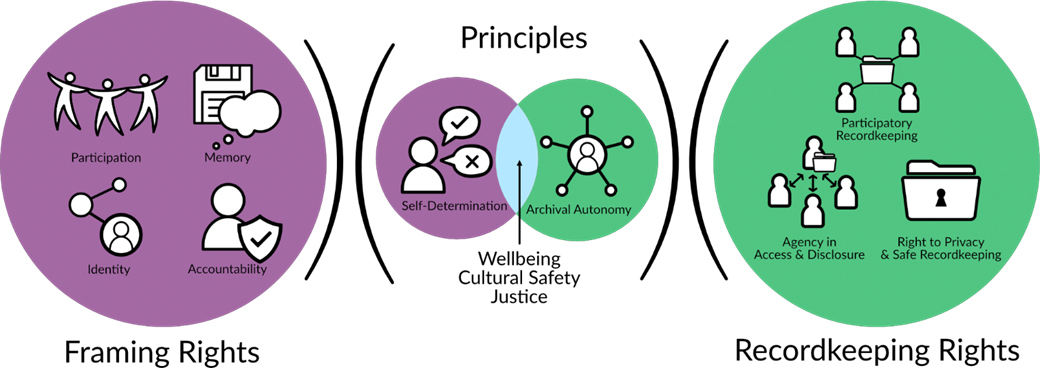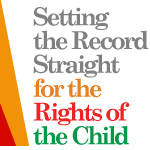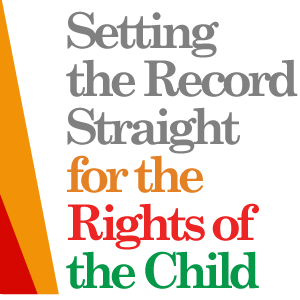Charter of Lifelong Rights in Childhood Recordkeeping in Out-Of-Home Care
https://www.monash.edu/it/clrc
Chief Investigator: Professor Sue McKemmish
Faculty of Information Technology
Monash University
Email: sue.mckemmish@monash.edu
Research Fellow: Barbara Reed
Faculty of Information Technology
Monash University
Email: barbara.reed@monash.edu
The role of recordkeeping and archiving in human rights and social justice contexts has been actively explored by Monash scholars over the past two decades. This research has engendered a rethinking of participatory archiving as it relates to official as well as other types of records, an expanded conceptualisation of archival activism and a new concept of archival autonomy. It also provides insights into the vital transformative roles that these factors individually and collectively might play in society. Formalising recordkeeping rights can offer scaffolding for embedding principles of justice and a lifelong ethics of care in and through human-centred information systems and participatory practice.
The Charter of Lifelong Rights in Childhood Recordkeeping in Out-of-Home Care, centred on the critical, lifelong and diverse information and recordkeeping needs of Australian and Indigenous Australian children and adults who are experiencing, or have experienced Out-of-Home Care. The Charter is underpinned by the findings of the Rights in Records by Design Project, and the Indigenous Archiving and Cultural Safety: Examining the role of decolonisation and self-determination in libraries and archives doctoral project, 2018-2020 (focusing on Indigenous self-determination and cultural safety in the context of archives and libraries). It also draws on foundational research on the recordkeeping rights of Indigenous Australians undertaken in the ARC funded Trust and Technology Project, 2006-2010. The principles and values underpinning the Charter relate to child wellbeing and safety, self-determination, linked to archival autonomy and agency, and Indigenous Sovereignty and cultural safety. The Charter is a key component of the National Framework for Recordkeeping for Childhood Out-of-Home Care, as a major outcome of the 2017 Setting the Record Straight for the Rights of the Child Summit.
Human rights, Indigenous human rights linked to Indigenous sovereignty,[1] and transformative justice form the broader context of the Charter. Framed by identity, memory, accountability, and participatory rights, the recordkeeping rights specified in the Charter relate to participation, access, disclosure, and privacy. The Charter is designed to apply while a child or young person is in Care and throughout the duration of their life, supporting child safety principles,[2] the wellbeing of children and young people in Care, the cultural safety of Indigenous Australian children in Care, and meeting the lifelong information needs of Care leavers, including historical justice and redress. Importantly the Charter recognises that there are unique human rights issues associated with Australian Indigenous children whose removal from their families was and is part of a larger colonial project of dispossession and denial of Indigenous sovereignty.

Graphic representation of the Charter of Lifelong Rights in Childhood Recordkeeping in Out-of-Home Care
The Charter derives testimonial warrant from living experience, drawing from a substantial evidence base of inquiries and reviews conducted into child protection in the Australian context, as well as significant Care Leaver representation as co-producers of research informing the Charter. These testimonial warrants guide the Charter in confirming the existence of manifold individual, collective and administrative rights held and contested by a variety of stakeholders in records and recordkeeping (including both organizational and human entities), and clearly validates the position of children who intersect with the Care system as being those whose rights are most at risk in such encounters.
The Charter also derives instrumental warrant from existing rights statements and governance instruments, drawing primarily on those of United Nations and Australian formulation as most relevant to our immediate context. (Comparative expansion of the instrumental warrant analysis to include international instruments other than those issued by the UN is an area identified for future work.) Specific recordkeeping rights identified in the Charter relate to participation, access, disclosure, privacy, and cultural safety in recordkeeping. These rights apply while a child or young person is in Care, and throughout the duration of their life. Rights in recordkeeping support a broader architecture of lifelong identity, memory, accountability, and participatory rights, which are also articulated in the Charter.
For more information see
- Antonina Lewis (February 2020) Literature Review: Charter of Lifelong Rights in Childhood Recordkeeping in Out-of-home Care.
Implementation toolkit
A toolkit of resources has also been developed to help organisations implement the Charter. This includes
- a Best Practice Guide that links actions to the Charter rights,
- 11 Practice Advices which contain key implementation actions, explanations of certain issues and links to further resources to help organisations further explore challenges of relevance, and
- Strategies for regulatory bodies to implement uptake of the Charter.
[1] United Nations General Assembly, United Nations Convention on the Rights of the Child; United Nations Commission on Human Rights (UNCHR), United Nations Declaration on the Rights of indigenous peoples (UNDRIP)
[2] Adoption of the child safety principles in all organisations was recommended by the Royal Commission into Institutional Responses to Child Sexual Abuse 2017, and they are incorporated in the National Framework for Protecting Australia’s Children 2009–2020.
Rights in Records by Design is funded through an Australian Research Council (ARC) Discovery Grant DP170100198. The Chief Investigators are Associate Professor Joanne Evans (Monash University), Associate Professor Jacqueline Wilson (Federation University), Professor Sue McKemmish (Monash University), Associate Professor Philip Mendes (Monash University), Professor Keir Reeves (Federation University), and Dr Jane Bone (Monash University).




